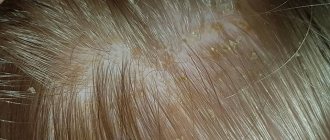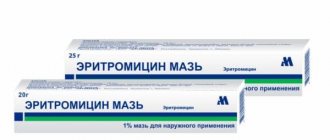Causes of geographic spots on the tongue
Geographic tongue is a disease manifested by dystrophic and inflammatory processes in the mucous membrane of the tongue.
The condition is characterized by alternating areas of peeling and thickening on the surface of the tongue. You should know why a child develops a geographic tongue and what parents need to do in this case. Causes of the disease:
- lack of B vitamins;
- diseases of the gastrointestinal tract (gastritis, gastroduodenitis, malabsorption syndrome, pancreatitis);
- endocrine diseases;
- autoimmune diseases (systemic lupus erythematosus, rheumatoid arthritis, multiple sclerosis);
- severe forms of viral infection;
- exudative diathesis, colds;
- diseases of the oral cavity.
Blood diseases, nervous disorders and autonomic-endocrine disorders are also the causes of geographic spots on the tongue. In children, the disease is often a companion to helminthic infestation. Predisposing factors include heredity and diseases of the spleen.
Features of symptoms
The main sign of the development of migratory benign glossitis is the formation of a grayish coating in the form of spots on the surface of the tongue. Gradually, the spots increase in size, and peeling appears in the middle, exposing the papillae. In this case, the neoplasms take the form of peculiar rings. The tongue becomes bright, and a pattern appears on it, somewhat reminiscent of a geographical map, which is why the disease got its name.
After successful treatment of desquamative glossitis, the symptoms of the pathology may disappear forever, but in some situations the disease becomes recurrent. In approximately 90% of cases, the disease occurs with virtually no symptoms2. Sometimes children experience a slight burning and tingling sensation on the tongue, and they complain of increased sensitivity to acid-containing foods. If the cause of the spots is an infection, the patient may experience symptoms such as high fever, general weakness, malaise, and soreness in the mouth.
“We were diagnosed with this pathology during a routine dental examination. To be honest, I had never encountered anything like this before; none of my friends had such a disease. Moreover, my daughter did not complain about anything at all, there was no pain, no inflammation - nothing at all! The doctor reassured us and said that there was nothing wrong with it and everything could be fixed. The coating on the tongue appeared in the spring, so this symptom was associated with a deficiency of B vitamins. We healed two holes, the doctor prescribed us vitamins and rinses. After some time, everything went away, and the disease did not manifest itself again.”
Lyubov Viktorovna V., St. Petersburg, from correspondence on the woman.ru forum
The pattern on the tongue resembles a map.
We found out what it means if a child is diagnosed with desquamative glossitis, and what the characteristic spots on the tongue may indicate. But is there any specific solution to such a problem? Since such manifestations may be a consequence of the development of infection in the child’s body, when the first symptoms are detected, it is better to seek advice from a dentist.
Symptoms of the disease
Symptoms most often appear on the back and side of the tongue. The disease is characterized by alternating areas of desquamation of the epithelium and thickening of the mucosa, resulting in whitish-gray and bright pink spots. In appearance they resemble a geographical map.
There are no obvious symptoms in this case. The condition is usually diagnosed when a patient is examined for another pathology. In rare cases (especially when eating spicy, hot and salty foods), the patient may complain of:
- change in tongue sensitivity;
- burning and tingling sensation;
- itching;
- discomfort while eating.
On our website Dobrobut.com you can make an appointment with a doctor and get answers to all your questions. If necessary, the specialist will prescribe additional diagnostics and a course of treatment after receiving the examination results.
Diagnosis and treatment of geographic tongue in an adult
Diagnosis of the disease in most cases does not cause difficulties. The diagnosis is made after a thorough examination and history. In some cases, consultation with a dentist and gastroenterologist will be required.
When making a diagnosis in adults, an extensive examination is necessary. When collecting anamnesis, the presence of chronic diseases and allergic manifestations, as well as the state of the immune system, is taken into account. Taking all this into account, the doctor will prescribe a course of treatment for geographic tongue in an adult and monitor its implementation.
How to solve a problem
Many parents are concerned about the question: how to cure the disease and what to do if the child shows signs of desquamative glossitis? First of all, it would be a good idea to check the condition of the gastrointestinal tract, the presence of dental diseases, take any tests that are required, and also undergo an examination by an endocrinologist and gastroenterologist. Many experts, for example, believe that desquamative glossitis does not require any special treatment at all, especially if the child has no complaints of discomfort or unpleasant sensations. Here it is important to evaluate the medical history as a whole, establish the causes of the corresponding symptoms and eliminate them - then the mucous membrane will recover on its own.
On a note! Sometimes folk remedies help well - infusions and decoctions of medicinal herbs, including sage, oak bark, and chamomile. These plants have antiseptic and anti-inflammatory properties, but be sure to consult a doctor before using them.
However, in some cases, when the patient still experiences pain, doctors use new therapeutic methods to restore the epithelium of the tongue mucosa. Timely treatment also avoids the development of inflammatory complications. So, drugs with an analgesic effect and multivitamin complexes can be prescribed. To stimulate recovery, Solcoseryl ointment is often prescribed, and to prevent infection, it is recommended to rinse the mouth with antiseptic solutions - Chlorhexidine or Miramistin.
Rinsing your mouth with an antiseptic solution will prevent infection
Treatment of pathology
Drug therapy is aimed at eliminating the underlying cause. Geographic tongue is not an independent disease, but a condition that signals serious problems in the body.
Additional events:
- sanitation of the oral cavity;
- exclusion of salty, spicy and hot foods from the diet;
- alkaline rinses, local applications with anesthetic;
- prescription of antihistamines;
- prescription of multivitamin complexes.
If you strictly follow the doctor’s recommendations, the prognosis for the disease is favorable.
Traditional medicine recommends using oak bark decoction, calendula or chamomile decoction as rinses. You can also use propolis (applied to the affected areas), vegetable oil (oral baths) and honey.
Preventive measures
There are a number of recommendations, the implementation of which will ensure the prevention of the development of not only desquamative glossitis, but also its relapses. Here are some of the tips that experts give:
- try to limit your child’s consumption of too hot, salty, spicy or smoked foods - foods that irritate the walls of the intestines and stomach,
- exclude coffee drinks and overly sweet foods,
- do not forget about the importance of preventing vitamin deficiency, provide your diet with a sufficient amount of vegetables, fruits, foods with vitamins E and B calcium. If the baby is still very small, feed him nutritional formulas enriched with beneficial microelements,
- regularly undergo preventive examinations at the dentist, preferably 3-4 times a year,
- carefully monitor the condition of the child’s mouth and teeth; if any suspicious symptoms appear, show the child to a specialist,
- Teach your baby to brush his teeth every morning and evening, use brushes and toothpastes appropriate for his age.
Maintaining oral hygiene will help reduce the risk of disease
Despite the fact that geographic tongue usually does not cause any serious discomfort or other troubles, such a condition requires attention. Often it signals other pathological processes occurring in the child’s body. In any case, he needs to be shown to a doctor as soon as possible. Only a doctor will be able to diagnose desquamative glossitis, determine the true cause of the problem and take the measures necessary to solve it.
- According to the results of a WHO study.
- Kazarny, L.N. Diseases of the mucous membrane of the oral cavity and lips in children, 2004.
Complications and prevention
Geographic tongue is not an independent disease, but its appearance signals serious disturbances in the functioning of the body. The sooner you contact a specialist, the sooner adequate treatment will be prescribed. Timely therapy is a guarantee of a high-quality cure for the disease.
In childhood, complications are very rare.
Preventive actions. Fighting bad habits, taking vitamins in the spring and autumn, adequate treatment of gastrointestinal diseases and timely sanitation of the oral cavity will help avoid this condition.
Book a consultation with our specialists and find out how to treat geographic tongue disease.
What is meant by pathology
Scientifically, geographic tongue is called migratory desquamative glossitis of the tongue (benign), and this is a full-fledged disease, which, accordingly, requires treatment. The development of the medical history is accompanied by active rejection of the outer mucous surface of the tongue. It should be noted that characteristic changes are usually observed only in the “back” and edge areas.
So why might a child develop characteristic spots on his tongue? Experts have not yet figured out the exact causes of desquamative glossitis, but the factors that can provoke the manifestation of the disease are still known. These include:
- infectious diseases,
- systemic pathologies of connective tissues,
- diathesis in exudative form,
- worms,
- disruptions in the digestive system,
- disturbances in the functioning of the endocrine system,
- allergic manifestations,
- avitaminosis,
- genetic predisposition.
Photo: what a geographic tongue looks like.
In some situations, signs of the disease appear during the eruption of baby teeth. In other cases - in children 3 years of age and older as a result of infection of the body or problems in the functioning of the stomach and intestines. According to reviews, the disease often develops during puberty.









